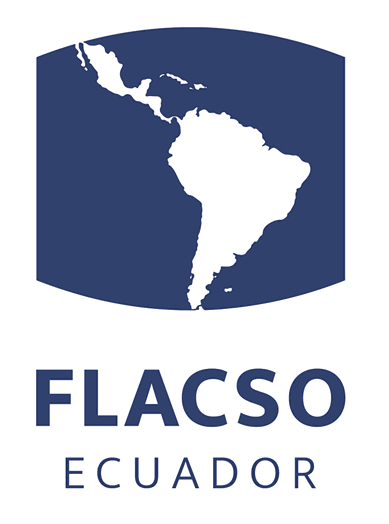Please use this identifier to cite or link to this item:
http://hdl.handle.net/10469/2706| Type: | Revista |
| Title: | Locas y fuertes: cuerpos precarios en el Guayaquil del siglo XXI |
| Other Titles: | Locas and Fuertes: precarious bodies in 21st Century Guayaquil |
| Authors: | Sancho Ordóñez, Fernando |
| Issue: | Jan-2011 |
| Publisher: | Quito : FLACSO sede Ecuador |
| ISSN: | 1390-1249 |
| Citation: | Sancho Ordónez, Fernando. Locas y fuertes: cuerpos precarios en el Guayaquil del siglo XXI (Dossier) = Locas and Fuertes: precarious bodies in 21st Century Guayaquil. En: Íconos: Revista de Ciencias Sociales. ¿Cómo se piensa lo "queer" en América Latina?, Quito: FLACSO sede Ecuador, (no. 39, enero 2011): pp. 97-110. ISSN: 1390-1249 |
| Keywords: | HUMILLACIÓN GAYS HETERONORMATIVIDAD LOCAS PERFORMATIVIDAD PRECARIEDAD REGENERACIÓN URBANA |
| Format: | p. 97-110 |
| Description: | Este artículo realiza una aproximación a las formas en que son construidos los cuerpos de quienes cuyas identidades sexuales y de género no están sujetas a un modelo heteronormativo predominante dentro del contexto local de la ciudad de Guayaquil. A través de conceptos como performatividad,
precariedad y abyección propuestos por Judith Butler, se intenta explicar las formas
cómo los cuerpos de quienes subvierten el sistema dominante de sexo y género han sido excluidos del espacio público de una ciudad que al empezar el siglo XXI inició un proceso de ‘regeneración urbana’. Se muestra además cómo las diferencias de clase y raza repercuten en el desplazamiento de estas identidades por parte de hombres de clase media que se identifican como gays. This article presents an approach to the ways in which the bodies of those persons whose sexual and gender identities are not subject to the predominant heteronormative model are constructed within the local context of the city of Guayaquil. By means of concepts such as the performative, precariousness, and abjection proposed by Judith Butler, an attempt is made to explain the ways in which the bodies of those who subvert the dominant sex and gender systems have been excluded from the public space of a city that, at the beginning of the 21st century, began a process of ‘urban regeneration.’ In addition, the article demonstrates the way class and race differences have repercussions in the displacement of these identities by middle class men who identify themselves as gay. |
| URI: | http://hdl.handle.net/10469/2706 |
| Appears in Collections: | Revista Iconos No. 39, ene. 2011 |
Files in This Item:
| File | Description | Size | Format | |
|---|---|---|---|---|
| RFLACSO-I39-07-Sancho.pdf | 125,68 kB | Adobe PDF |  View/Open |
Items in DSpace are protected by copyright, with all rights reserved, unless otherwise indicated.


